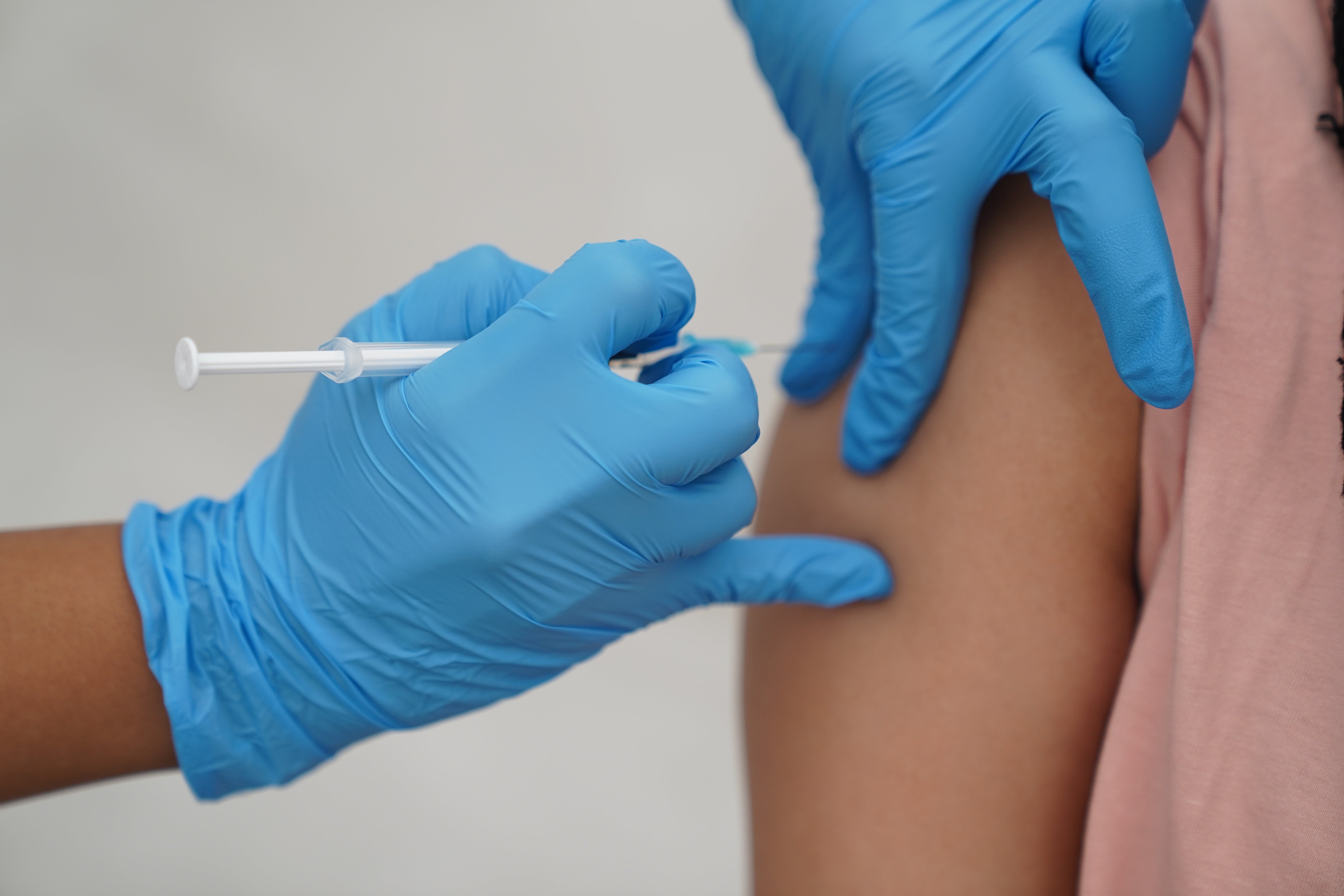Immunocompromised may still get jabs over next 12 months, MPs told
Dr Jenny Harries spoke about the rollout of vaccines during a meeting of the House of Commons Public Accounts Committee.

Care home residents, those aged 75 and over and people with weakened immune systems may still receive Covid booster jabs over the next six to 12 months, MPs have heard.
The House of Commons Public Accounts Committee gathered to question senior members of the NHS, heads of the UK’s vaccine deployment and vaccine task force and members of the Government on the rollout of the Covid-19 vaccine plan.
During the hearing on Monday, Conservative MP and committee member Sir Geoffrey Clifton-Brown asked if there would be an annual vaccine programme continued to be rolled out over the next year or so.
Dr Jenny Harries, chief executive of the UK Health Security Agency, said the UK is currently in a “settling down period” over the next 18 months to two years as the pandemic is not yet over.
She added that the arrival of any new variants is difficult to predict and it is hard to pinpoint the future of what vaccines to procure to protect people against the virus as the science is “uncertain”.
“There are different fields of thought around whether we should be looking for individualised variant responses, so an Omicron vaccine, a multivariant vaccine, or actually, which is perhaps a more dominant thought, are we building up broad immunity?” she told the committee.
Dr Harries added: “I think in terms of where we are now, we have reasonable evidence that there is a strength of immunity building up and, in fact, either vaccine-induced or naturally-induced antibodies can be found in around 99% of the English population at the moment, and we’re seeing that come through, so the vaccines are our armour.
“In terms of waning [immunity], I think there are lots of debates frequently in the media around three months or six months.
“The JCVI [Joint Committee on Vaccination and Immunisation] will look at all the data coming through … we’ve seen for example, with the spring booster, that broadly we’re saying that for six months afterwards, most people will maintain a response for the current variant.
“Now, all of these things, of course, need evaluating every time a significant new variant comes forward, so we retain the skill and capacity to do that.”
Sir Geoffrey asked: “So the answer to the final question was, for the foreseeable future anyway, we’re going to be in for six months or 12 months updated vaccine?”
Dr Harries responded: “For relevant groups, as per the evidence that we have.
“So the spring booster campaign is for those who are 75, care home residents and those who are immunocompromised, and I’m confident that, as we go forward, we’ll end up being able to hone those programmes, in the same way we are with treatments, to those people who most need them and are most able to benefit from them.”
Since rolling out spring boosters last week, more than 470,000 people have come forward for a jab, NHS England has said.
The health body added that more than 600,000 people will be invited for a Covid-19 booster jab next week as case numbers in England continue to soar.
The JCVI has recommended that eligible people get their vaccine six months after their initial booster for maximum effectiveness.
It is thought that around 5.5 million people in England aged over 75 or immunosuppressed are eligible for a spring booster vaccine.
According to Government figures, 486,923 people tested positive in the seven days up to March 28.
Bookmark popover
Removed from bookmarks